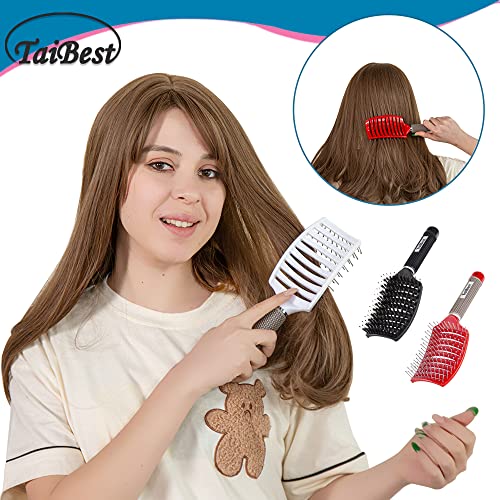






Boar Bristle Hair Brush for Conditioning, Texturizing, and Scalp Exfoliation
Category: Hair Brush

The Ultimate Breakdown
Hair Brushing Guide: Basic Steps and Tips
Dry Hair
- Gentle Brushing: For dry hair, brush gently to avoid frizz or breakage.
- Natural Oil Distribution: Stroke from the roots to the bottom of the hair, spreading natural sebum and oil to the entire strand.
Damp Hair
- Use a Wooden Pin Brush: For damp hair, use a wooden pin brush designed for wet hair to minimize damage.
- Start from the Bottom: Begin brushing at the ends, gradually working your way up to the roots. This prevents pulling and minimizes tangles.
Brushing in Sections
- Tackling Thick or Tangled Hair: If your hair is thick or tangled, separate it into sections and work through each part methodically.
- Perfect Styling: Styling hair in sections yields optimal results.
Dry Hair Care
- Root to Tip: Stroke from the roots to the tips of the hair. Spread natural oil-rich sebum to the ends, which often dry out faster than the areas closer to the roots.
Brush Maintenance
- Regular Cleaning: Clean hairbrushes every 1-2 weeks (or more often if needed) by removing strands and washing with warm soapy water.
- Check for Damage: Ensure bristles are not bent or broken. Replace worn brushes to ensure proper hair care.
Warnings
- Gentle Brushing: Avoid brushing dry or fine hair too aggressively. This can cause split ends or excessive breakage.
- Heat Care: Use brushes designed for heat tools (e.g., ceramic or heat-resistant brushes) when using heat styling tools.
- Moderation is Key: Brushing too much can lead to damage and breakage. Use just enough to smooth out tangles.
Compliance Marking
- IFS Household and Personal Care Certification: Our brushes meet the requirements at the higher level with a score of 98.21%.
- Certificate Details: Registration No. 44 294 160243
- Audit Report: Report No. 3536 4455

















